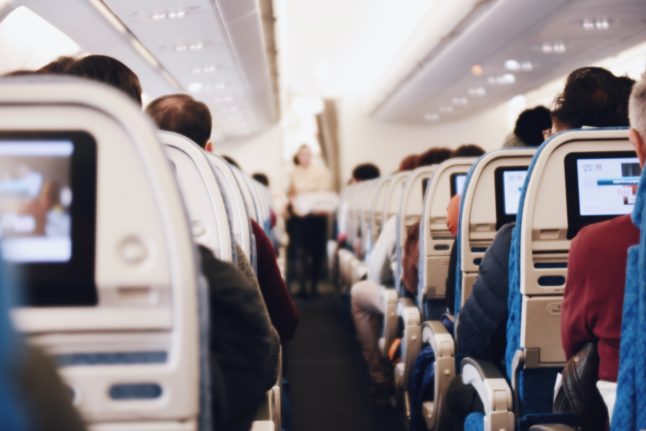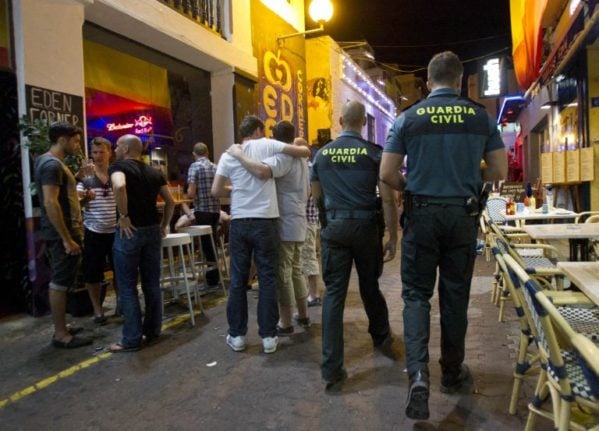Over the past four years, airline activity has gone from being virtually non-existent because of the lockdowns and travel bans during the pandemic to recovering almost 100 percent over the last couple of years.
If you’ve been looking for a flight to or from Spain in the summer, you’ll notice that the prices are much higher than in previous years, and even more than before the pandemic. But it’s not just in Spain where these crazy price rises have been recorded, it’s happening all over Europe.
Why are flights so expensive this summer?
At the end of April, the president of the Association of Airlines (ALA), Javier Gándara, said during a press conference that “the prices are not set by the companies” but rather “by the interaction of supply and demand”.
There seems to be even more demand for travel this year than there was in 2019, which was already a record year for tourism in Spain. This summer, 219 million seats have been booked on planes either arriving or departing from Spain, a figure that is 3 percent higher than that of the summer before the pandemic.
After several years of no travel abroad, combined with the war in Ukraine causing fuel prices to skyrocket and the rise in the cost of living, flight prices are at the highest they’ve been for years.
According to The Hopper travel application, flights to Europe and Asia are at their highest levels in the last five years and cost almost €300 more than a year ago.
The International Air Transport Association (IATA) has indicated that the price hikes are due to the increase in the price of kerosene. “High fuel prices, as well as other inflationary cost increases, can have an impact on ticket prices that can increase if airlines are unable to absorb or avoid the cost themselves,” they explained.
The CEO of easyJet, Johan Lundgren, told the French news agency AFP that while the price of fuel has risen by 71 percent, the average rate of the low-cost airline has increased by 31 percent, the equivalent to €14. For this reason, “it is still within the reach of many clients,” he justified.
Revenue per seat offered by Air France-KLM rose more than 38 percent, while the German group Lufthansa foresees “a travel boom in the summer, as well as a new record” when it comes to revenue per passenger, given the level of reservations it had already received at the beginning of May.
How to get a good deal on flights
You may not be able to get flights as cheap as you once could, but there are still several things you can do to keep your costs down.
Gándara recommends booking your flights “sufficiently in advance” because the closer to the flight date, the more expensive the tickets tend to be. So, if you haven’t booked your flight yet, now is the time to do so.
Avoiding the peak holiday season in July and August can also help save you money. If it’s possible, take an early summer holiday in June or a later one towards the end of August and the beginning of September.
Instead of going straight to your preferred airlines this year, look on websites such as Skyscanner which will give you the cheapest options on all the different airlines. It can also find cheaper tickets for you if you’re willing to make stopovers instead of flying direct.
What are the alternatives?
Train travel can be a great alternative to flying this summer. While long-distance trains can often be a lot more expensive than flying, this year may be different.
The Spanish government recently announced that it would offer a 50 percent discount on Interrail passes to help people aged 18 to 30 travel the continent over the summer.
READ ALSO – Spain’s half-price Interrail train pass for Europe: What you need to know
Prime Minister Pedro Sánchez also revealed plans for a new Spanish Interrail pass, so that young people can get the chance to explore Spain with a 90 percent discount on state-owned trains and buses, as well a 50 percent discount on high-speed trains.
This is in addition to the free multi-journey train ticket scheme offered by the Spanish government, which has been extended throughout 2023. While it’s primarily designed for commuters, you take many journeys on the same train, in theory, you could just pay the deposit of either €10 or €20. Unfortunately, they are not available for the high-speed AVE trains.
If you do want a cheap high-speed journey though, low-cost operators such as Ouigo, Avlo and Iryo have routes across Spain for as little as €7.



 Please whitelist us to continue reading.
Please whitelist us to continue reading.
Spot prices for Kerosene have almost returned back to exactly where they were prior to the pandemic; currently they’re just over $2, while previously they averaged around $1.90/gallon. https://ycharts.com/indicators/gulf_coast_jet_fuel_spot_price
The falling EUR to USD will probably hurt our prices in the short term a bit though.